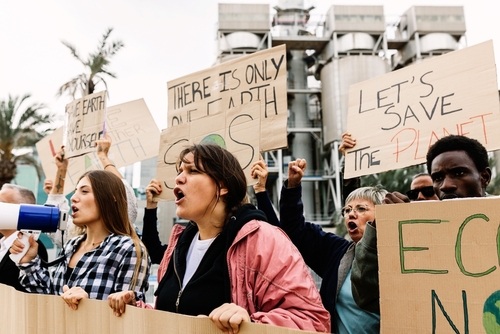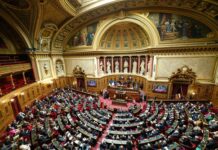
In a significant legal development, members of the progressive "Squad"—Ilhan Omar, Jamaal Bowman, and Alexandria Ocasio-Cortez (AOC)—are facing a class-action lawsuit filed by five anonymous Columbia University students. The lawsuit alleges that the Squad members incited and encouraged protests at the university, which led to a hostile and dangerous environment for Jewish students.
The protests, which centered around a pro-Palestinian encampment known as the "Gaza Encampment," reportedly violated university rules and targeted Jewish students with harassment and intimidation. The students behind the lawsuit claim they were subjected to antisemitic abuse, including being followed, blocked, and bullied on campus.
Anti-Semitic Squad members sued with CLASS ACTION LAWSUIT for 'inciting' Columbia anti-Israel encampment.
Students say they were 'harassed, followed, intimidated and bullied'! It’s About Time! #MAGAhttps://t.co/uFWvj3lA0H pic.twitter.com/LmdzFKYKoh
— TRUTH NOW ⭐️⭐️⭐️🗽 (@sxdoc) August 4, 2024
The lawsuit highlights a specific incident where AOC tweeted during the protests, criticizing the university administration and Mayor for their handling of the situation. She warned that any harm to students would be the responsibility of the university and city leadership, thus amplifying the unrest on campus.
During the protests, Jewish students reported multiple incidents of targeted harassment. One student recounted being followed and verbally abused by protestors for wearing a yarmulke, while others faced antisemitic propaganda and posters throughout the campus.
Students Hit Leftist ‘Squad’ Members with Lawsuit for ‘Inciting’ Anti-Israel Protests at Columbia University
READ MORE: *https://t.co/FHtHs9w7KP @Columbia @Penn @Stanford @Princeton @Harvard @usedgov #ColumbiaLawsuit#SquadIncitement #AntiIsraelProtests #StudentActivism… pic.twitter.com/txepvTQHU6
— The Jewish Voice (@TJVNEWS) August 5, 2024
Columbia University officials have struggled to manage the protests, which have seen a resurgence despite attempts to dismantle encampments. The university administration initially tried to negotiate with the protesters, a move seen by many as a tactical error that emboldened the demonstrators.
Adding to the university's troubles, three deans were recently removed after their antisemitic text messages were leaked. These messages, sent during a panel on Jewish life at the university, contained derogatory remarks about Jewish students and faculty, further inflaming tensions on campus.
The broader implications of this unrest are significant, as similar protests have spread to other campuses across the nation. This phenomenon reflects a growing trend of radical activism in higher education, which critics argue is fueled by both student organizations and sympathetic faculty members.
As the lawsuit progresses, it raises critical questions about the accountability of public figures in stoking campus unrest and the responsibilities of university administrations in safeguarding their students. The outcome of this legal battle could set a precedent for how universities and public officials handle similar situations in the future.











